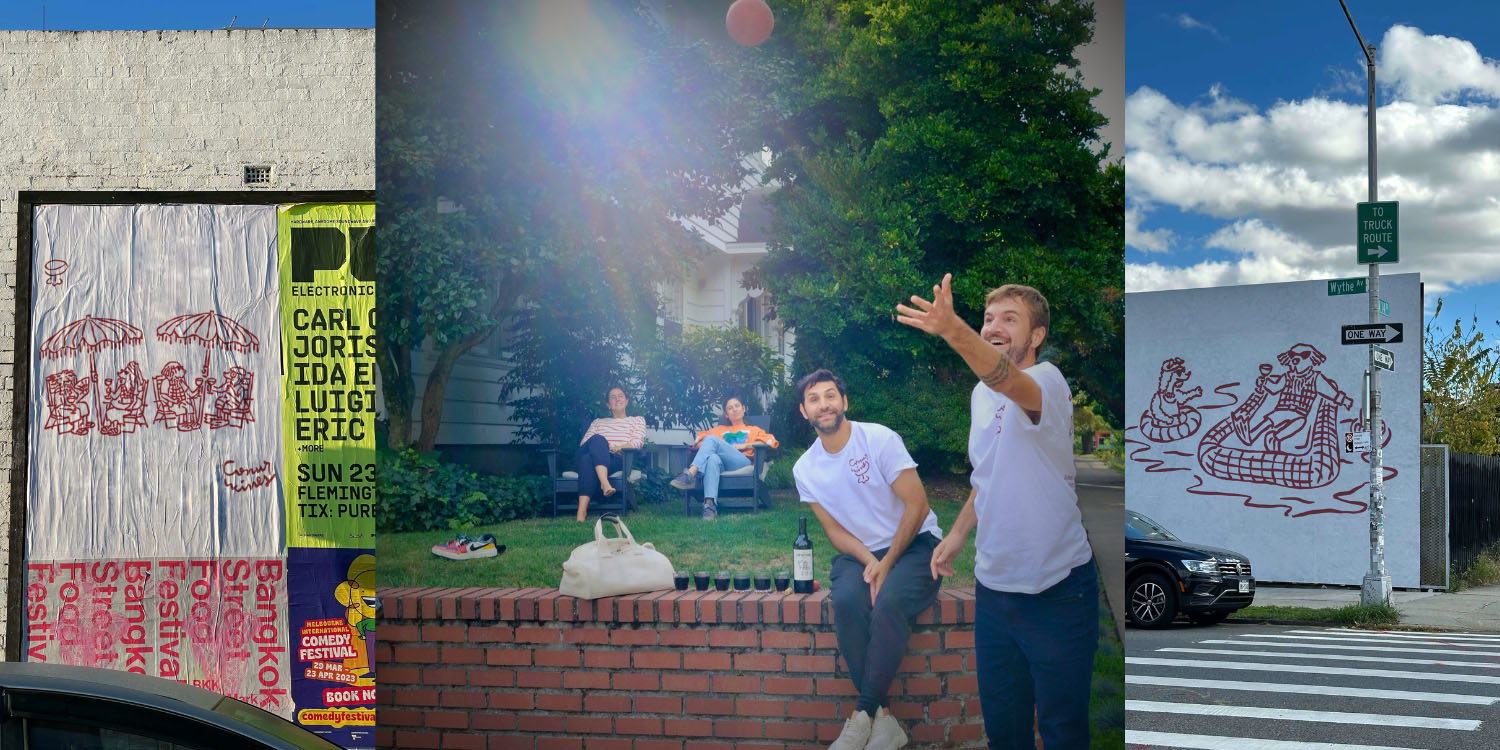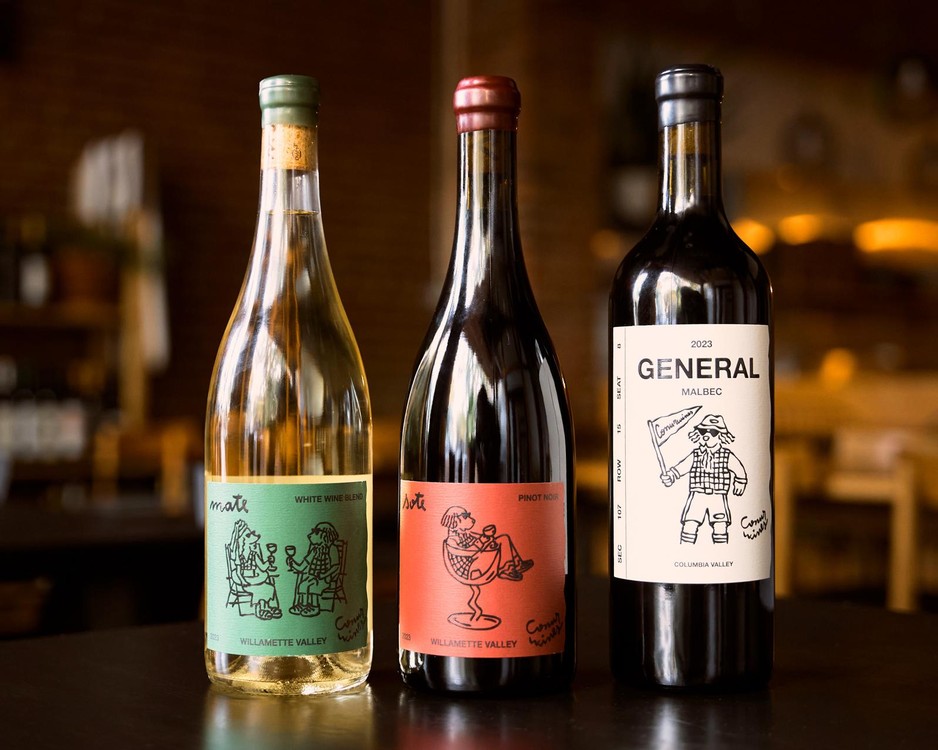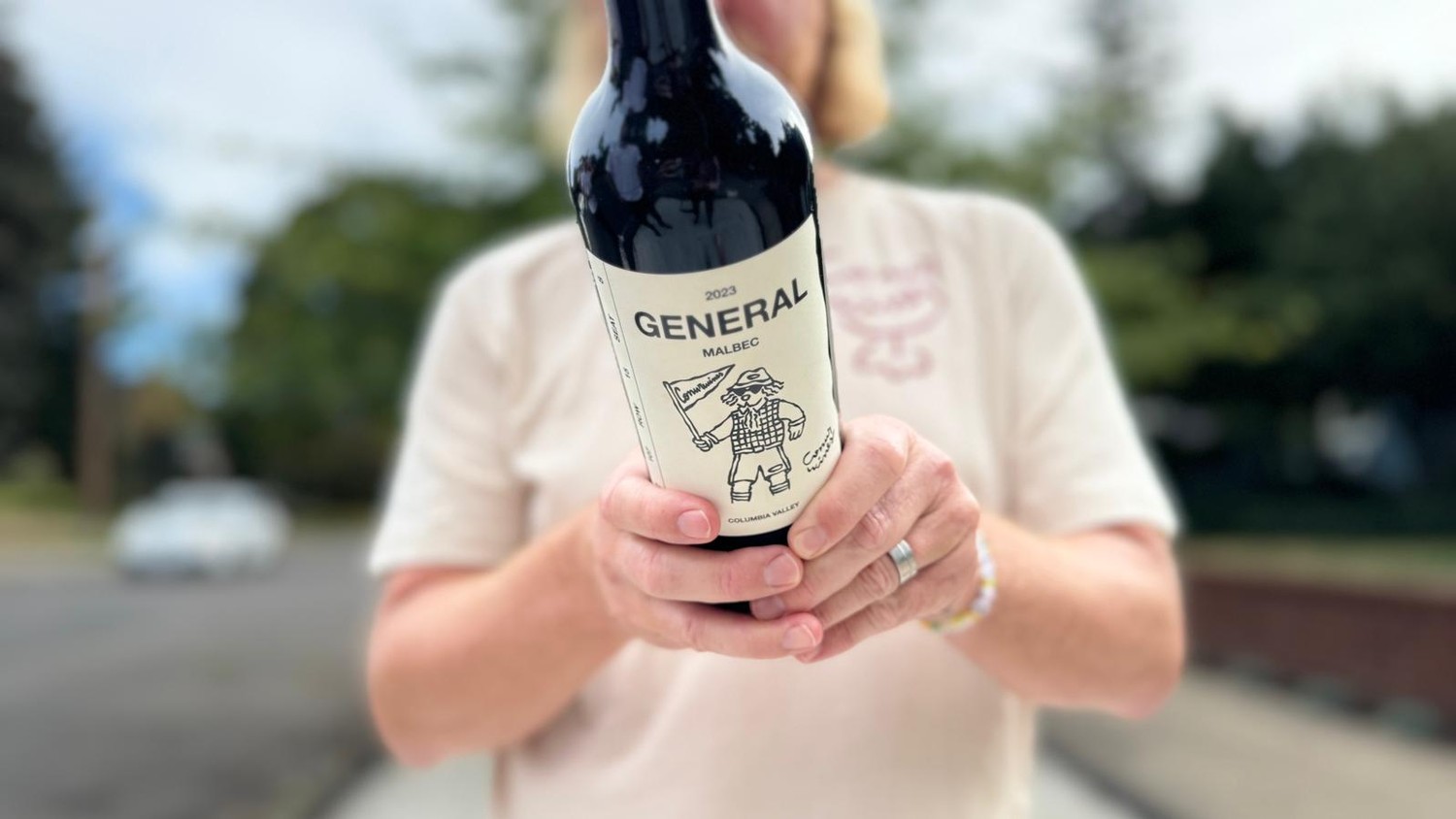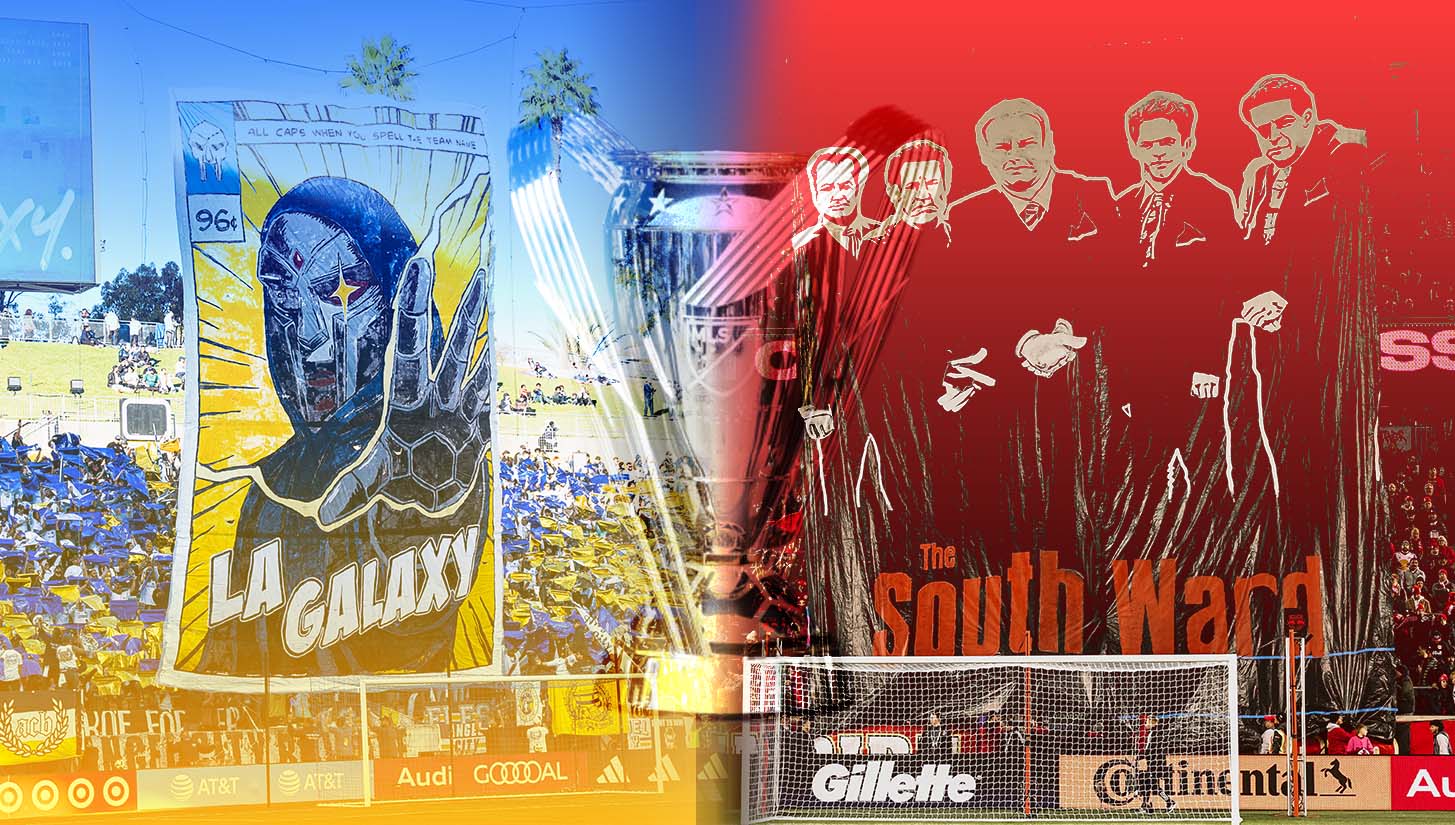As we ramp up towards the 2024 MLS Cup final between the Los Angeles Galaxy and New York Red Bulls, we sit down with Diego Valeri, who discussed the year that was in MLS, where the league goes from here, and his new wine venture.
Diego Valeri is one of the most well-liked and respected players in the history of Major League Soccer. The now 38-year-old was considered by many to be the best Argentine to ever grace the fields of MLS, until a certain little guy from Rosario named Lionel Messi came to Inter Miami.
Playing nine seasons in MLS, Valeri eventually embraced the customs of the United States and cherished his new home in Portland for himself and his family, while maintaining his Argentine roots. Today, he is one of the lead analysts for MLS en Español on Apple TV, usually paired with Sammy Sadovnik on play-by-play. He’s also gotten into winemaking, as one does in retirement.
We caught up with Valeri as he finished calling the Los Angeles Galaxy and Seattle Sounders’ Western Conference final. The former MLS star spoke about his life off the pitch, MLS in 2024, and what’s going on with his old club, the Portland Timbers.
Interview originally in Spanish and translated to English. It is lightly edited for clarity and brevity.

Diego Valeri: The Winemaker and American Life
Urban Pitch: Before we get started, one thing we want our readers to know is that when we were booking this interview, we were supposed to do it on Thanksgiving Thursday, but you made it a point to say you were celebrating the holiday. So I guess you can say you’re a full-blown American now, celebrating Thanksgiving?
Diego Valeri: (Laughs) Well, it’s been over a decade of living in the United States — almost 12 years — and Thanksgiving is an important holiday. It’s a very lovely holiday for what Thanksgiving means: to “give thanks” and take action. Aside from the historical importance, my daughter, who is 15, has lived here almost all her life. My wife and I have spent the majority of our adult lives in the United States.
In Portland, it’s almost a week-long holiday. We spend it with family. We wanted to travel, but since I travel a lot (covering MLS), we stayed in Portland, and we made a great decision because we had a family dinner, cooked, and just spent time together.
Also, given the climate of things in the U.S. and this past election, a day like Thanksgiving goes a long way to show that we aren’t as different as social media would suggest, right? Especially from the perspective of someone from abroad.
I agree. I think this is something that isn’t unique to the way life is lived in the U.S. today, but more of a global trend. I believe it’s like a form of rebellion, right? A way of rebelling against certain things by slowing down, calming your mind, calming things down. I don’t know if I should phrase it like that, but it’s that need to be productive, right?
I know it might not be the perfect word, but you need to focus on things that nourish you as a person — things that fill a dimension in your life that sometimes you don’t notice in the rush of daily life. From that perspective, I think it’s been very beneficial for all of us, and it’s a lesson. Many people live far from their families and get to reunite with them.

Turning to your venture into wine, ConurWines, how did the idea come about to get into winemaking?
It’s a project between friends, but it was really my wife’s idea. She wanted to make a wine. She used to say, “The only thing I like, as a good Argentine, is red wine,” since I don’t drink much alcohol and don’t really know much about it.
The only thing I liked was red wine, particularly Malbec, which is what I liked the most from Argentina. So, since Oregon is a region known for producing high-quality wine, especially Pinot Noir, we thought it could work well. Sometimes, when you’re making a wine, you have to make it your own. I didn’t like the idea of a wine labeled after a person, so when we decided to make our own wine, to start something new — a project that would connect us and also express a bit of who we are — we reached out to friends who are helping us a lot with this.

It started during a dinner in Florida, and the idea of blending Argentina and Oregon through wine was born. This has been a learning experience for us. We made a Malbec from the region, which is not very common. We also made the famous “Mate” wine, which represents all of us because, as you know, it’s our tradition, our ritual, our traditional drink, and it’s a way to connect. All the labels of our wines are bilingual or have meanings in both Spanish and English.
In fact, the Malbec is called “General,” which is like the “general admission in.” We also make a Pinot Noir line, which is great, but above all, it’s about expressing what it means to be around wine. That’s something we’ve been experiencing a lot lately — not connecting as much in person, but virtually. I think wine, as a symbol, is also a way of sharing, just like food or a conversation, right? But it’s basically that — something that today we might be losing a little, so we loved the idea. We all loved it, and it’s a family business.
Along with wine, maté seems to be coming to the forefront, with even Stanley making a specialized maté cup, including one in collaboration with Lionel Messi.
It is becoming known worldwide. I mean, it has always been known as an Argentine drink, but today even international figures drink maté, which I imagine gives Argentinians pride.
In reality, we don’t know if it’s Argentine, Uruguayan, or from the Río de la Plata region. Well, it’s definitely from the Río de la Plata, but maybe a historian would come and tell me otherwise, right? They even say it comes from Peru, but it’s not clear. In Paraguay, they drink the famous tereré, and in Brazil, there are some regions where it’s also consumed.
But the most important thing is that it’s attractive to the world to see what it is and what it means. And I think the most important thing is, of course, speaking of the wine project we’re working on, one of the wines is called “Mate.” It’s like a tribute, a form of admiration, right? A way of showing gratitude toward our traditional drink.
View this post on Instagram
And one thing that often happens with maté — and I became quite a coffee drinker here — is that maté is something that accompanies you. Maté is always with you. When you see players coming in and sharing maté, it’s like a form of support, right? It’s like a kind of ritual support. It could be for something else, but more than the effect of what maté actually does and the ritual of sharing it, of making it, of serving it, of holding it in your hand, of having it with you — it’s like it warms you, right? For those of us who drink it hot, it gives you warmth.
I think that’s what we wanted to reflect in the project. Mate is like the maté here; it’s the companion, the teammate, the one who’s with you, and you have it when you need it. That’s why it’s so special.
MLS in 2024
Looking back at the 2024 MLS season, what happened with Inter Miami? Was 2024 a failure for them?
Look, let’s start at the end. Inter Miami’s playoff elimination was a tough blow, as they had the chance to impose their superiority on an Atlanta team with a smaller squad and injuries. While Atlanta had momentum after an unlikely playoff entry, Miami failed to win at home and secure comfortable victories, which allowed Atlanta’s standout goalkeeper, Brad Guzan, to shine.
Despite this, the Miami project should be seen as a success overall. They won the Leagues Cup, reached the Open Cup final, set a points record, and proved they were the best team in the league in 2024. The squad is strong, with both seasoned stars like Messi, Alba, and Suarez, as well as young players like Redondo, Toto Avilés, and Diego Gómez, who are still developing. The pressure they face is a result of how quickly Inter Miami became a big team, and they’ve handled it well, managing to lift two trophies in a year-and-a-half — a feat that’s not easy to achieve in this league.
The appointment of Javier Mascherano as coach is seen as a positive move, even though he’s new to MLS. His vast playing experience, including captaining Argentina and playing in World Cups, combined with his coaching experience with youth teams, makes him a valuable asset for Inter Miami’s future. Though his coaching career has had ups and downs, he’s shown a strong desire to implement his ideas, and this could be the ideal environment for him to grow.
Inter Miami’s coaching staff, including experienced figures like Javier Morales, Freddy Guaín, and Lobo Ledezma, already know the league well, adding important support. While Inter Miami didn’t meet every expectation this season, their progress is clear, and with Mascherano’s leadership and the team’s potential, the future looks promising.
Are you shocked by how many coaches were fired this season in MLS? With John Herdman being the latest — days of zero accountability in MLS seem to be a thing of the past.
It seems that maybe projects are getting a bit shorter, that’s true, but in comparison to other places, to other leagues, the projects are still a bit longer in MLS. On one hand, it surprises me because, in general, up until now, we were used to the idea in Major League Soccer that there could be a bit more patience, right? A bit more time. Now, how far does that wait go?
It also indicates that beyond this whole issue of no relegation, there is pressure. When there’s no result, you feel it internally. So now, with this issue of coaches, you’re seeing this shift. I’m not sure if “the process” is going to be cut short like it happens in other places, with extreme cases of five or six games and then they’re out, but it’s clear that the long process of maybe two or three seasons is no longer working.

How do you see the final between the Galaxy and the Red Bulls? What will it come down to?
Losing Riqui Puig is a huge blow, but I think the game will be dominated by the Galaxy. Against Seattle, the team showed a lot of maturity. Still, losing Riqui Puig is key, especially if Pec or Paintsil aren’t at their best. But I still think the favorite is the Galaxy, and playing at home will be key. The Red Bulls will be hoping for a dead ball situation, a counter attack. If they can get an early goal, they know how to sit back and defend. I think the game will be won or lost on that, although the favorite is the Galaxy.
What do you make of the ever-changing DP rule changes or salary cap in MLS? We saw Inter Miami really use all the tools available to get the best roster possible. Is the DP rule a thing of the past? Will the rules morph sooner rather than later?
After the World Cup, MLS may need to rethink its rules, which are becoming outdated. Streamlining the process and creating more equal investment rules, like financial fair play, could make the league more competitive and attractive.
The league is already becoming more competitive, with any team capable of winning, but there are questions around things like the signing of American players and DP rules. Speeding up the process and focusing less on DP restrictions could create a more balanced approach.
Ultimately, changes depend on the league’s stakeholders, with the players’ union also playing an important role in shaping the future. Personally, I’m not completely opposed to the idea of having more equal investment rules, like a kind of financial fair play for competition. It makes the league more attractive. It’s true that MLS is becoming more competitive, and it’s great to see that any team can win on any given day — that’s what makes the league so exciting.
What’s Next for the Portland Timbers
Looking at the Portland Timbers, your old team, it was a rather up-and-down season — not only on the field but off, too. There seems to be a major disconnect between the front office and the fanbase. There was also what Phil Neville said publicly about the roster. What do you think is going on?
Well, I know one thing for sure: the support from the fans won’t change because the club’s history has shown that the people will go to the stadium to support the team. In regards to what Phil Neville said in the post-game interview, part of what was said publicly should have stayed inside.
You have to respect the intimacy of the locker room, the squad, and the working group, and that kind of talk has to stay inside. I’m very much from that school of thought. These matters, which involve the whole group — a group that competes, prepares for a battle, a football match, or an achievement — should stay inside. Everything is open inside. Whatever it may be, inside you can talk about everything and anything, but outside, you have to be cautious, because otherwise, you compromise certain things, which sometimes can be wrong. Not everything that is expressed makes sense or is justified to the public.
So, I think that’s an important topic for setting the foundation for how to compete — a culture, a way of being.
Then, well, there’s the competitive side. It’s odd to see Portland in ninth place, losing 5-0 in the last match at home to Vancouver. It’s strange. It’s something that hurts, but it seems that, as I was saying, in a league that’s increasingly investing in squads, getting more competitive and tougher, Portland has an advantage: they invest in the team and know how to do it. To me, that’s an advantage.
After that, it depends on how the working group — the front office, the coaching staff, and the players — implement the approach to make it happen, each in their role. I believe that everyone in their place helps a lot for things to work. And, I think that’s the direction it’s heading, right?
Then it will also depend on which players adapt more to the club, and the team finding its balance, even with the coach, in his first year. I know that, in that sense, the front office is happy, in a way, with how the project is progressing, but it’s tough. It’s tough seeing Portland unable to get settled. Especially because it’s wonderful to go to the stadium and watch Portland play. For me, outside of my time at Portland, it’s the most beautiful thing in the league, no doubt. And, in fact, they are strong, generally, at home, which also helps in these moments.
@urban.pitch @Timbers Army’s tifo game is unmatched. 😳#mls #portlandtimbers #cascadiacup
When you look at the Portland squad, you see key pieces — Claudio Bravo, Jonathan Rodríguez, and then Evander. How do you see his situation playing out?
In the case of Evander, it comes down to one important issue: wanting to be here, right? Wanting to be (in Portland), because without wanting to be, you can’t, especially for a star player.
As you know, in Major League Soccer, it works in a way where around two, three, or four players — today, maybe even six — are the core of the team, with a mix of young DPs and older DPs, and the team is built around them. The team is built around key players, and while we could debate whether that’s entirely the right approach, it’s generally how things are done. Time will tell what decisions are made, but as I always say, everything has its return in life — except death, of course.
As for Portland, they’ve always had a solid squad. They brought in one of Club América’s top forwards, who has experience in Europe and the Middle East. His arrival quickly boosted the team, raising the level of players around him. They also brought in Maxime Crépeau, one of the best goalkeepers at the Copa América. There is something there for the future.
—
As we closed the interview, we joked about how now that he’s in the MLS Apple TV family, he should lobby to get Lionel Messi and Inter Miami to play a game, in what he defines as the best venue in MLS — Portland’s Providence Park.
View this post on Instagram
“It would be great, it would be awesome if adidas could play a part in seeing if they can bring Inter Miami to Portland. It would be amazing for Messi to experience what I think is the best and most beautiful stadium in MLS. So, he’d be very welcome — very welcome to the city, to my house if he wants to come (laughs). I know a good Argentine restaurant; I think he’d like it. It would be beautiful. It would be amazing for the city.”








